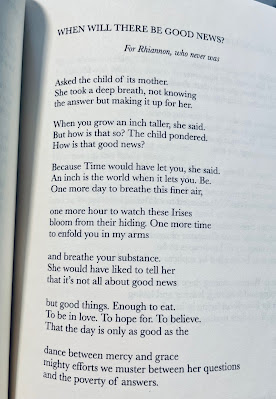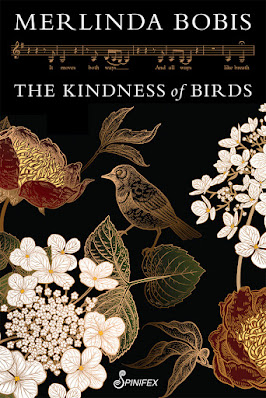HAROLD LEGASPI Reviews
Hotel Pacoima by Michael Caylo-Baradi
(Kelsay Books, 2021)
BOOK LINK
Michael Caylo-Baradi defines his racial consciousness in the English language, rather than writing in Filipino, or Filipino mixed in with English, to position his poems as deeply embedded in America’s ‘assimilationist’ paradigm. Yet, the ‘culture’ of the Philippines in Hotel Pacoima continues through its interweaving themes of nature, place, fleeting love, beauty and urbanity. The poems, while written in English, the colonising language, have a paradoxical effect of shifting the diasporic Filipino community in the U.S. and beyond. While the lack of Filipino language may show contempt for our culture, perhaps the high level of assimilation into the White Mother Country, as evidenced in the book’s English languaging, constructs a culture centred around the acts of writing and reading. Borrowing and working within the established traditions of the lyric, Caylo-Baradi poeticises the Filipino-American experience. A sense of pathos is nevertheless evoked, for a culture or cultures not fully embraced.
The distinctiveness of Caylo-Baradi’s voice culminates into the clarity of ways of thinking and rehearsing legacies of prior generations as well as nuances surrounding his own. Hotel Pacoima is a gift, as a means to reframing ideas which we should withdraw from, or embrace. The book’s epigraph by Anita Brookner echoes what the poet knows—‘The sun is God. Of the rest it is wiser not to know, or not yet to know’…Wisdom written in the poem ‘Lacustrine Dwellers’, where nature takes precedence, and shape our lives, is a reminder for us to remember, or rather, be nostalgic of the places which ‘brought us here’. Brookner notes, ‘I am aware once more of the force of nature. And at such moments, I experience the fullness of nature and its promises’. Hotel Pacoima is a mature incantation of belief and observations of a struggling world in the midst of the quest to attain peace through our humanity.
Caylo-Baradi juxtaposes ancient wisdoms of nature with the urbanity of places like L.A. As in ‘Alley into Los Angeles’, city layers ‘of, capital’ give way to ‘The usual glitter of broken glasses’, ‘progressive rustiness of metals’…’that ancient diet of roaches’. In the Hollywood freeway, we are ‘smothering speed, accelerating’, ‘Without / disappearing’. In ‘Mapping Los Angeles’, Caylo-Baradi poeticises Angelenos to be ‘each other’s maps’, in a city as ‘Immense as love in obsession / furious, expansive’. As such, Caylo-Baradi paints quietly, if not smoothly glides us to experience his dreamscape into imagining L.A.’s nature, L.A.’s beauty, L.A.’s moral centre, where ‘A hail of angels hovers on the margins’.
In the book’s first poem, ‘Prelude to Act I’, Caylo-Baradi makes clear the central concern. The voice of a male speaker, ‘a prince’, evoking the idea of his hero-quest to save a princess ‘from a curse / that paints affliction’. In the next poem, ‘Age of Permutations’, ‘nights take shape / of hollow moons…that refuse remembrance’…but ‘become memorable’ only as ‘shattered certainties’. This is in stark contrast to the poem ‘Persuasions’, where ‘the red light…nourish nights / like this, [where]…something familiar…couldn’t squeeze out / that night’, which ‘drip[s] on edges’.
We learn in ‘Before Feminism’ of the heroine’s (our princess’s) bid to survive, as she ‘parenthesize[s] what / she must keep’—‘a museum of / loose endings’, as she ‘wait[s] to be rescued’. Indeed, in ‘Morning After’, last night is of temporal significance as the poet writes of ‘drinks [which] drowned’ words ‘so [they] could communicate better / without the burden of phrases, sentences, / punctuating grammar’.
A beauty pageant takes place in ‘Prelude to a Beauty Pageant’—an event which is revered as a symbol for Filipino national identity. Aesthetics such as ‘Igorot tribal tattoos on a man’s neck’, ‘bald head[s] and a beard’, are juxtaposed against, ‘beauty rivalled by the organ inside the skull’. This idea of aesthetic relevance is given discourse in the next poem, ‘Our Island Country Wins Miss Universe Again’:
‘For a while, we
are not fragments in an archipelago, but a unified
vision of hope for the plight of our country,
sequined on our candidate’s gown…
a hint of waking from the glum of our past’.
The mundane is explored in the poem of the book’s title, ‘Hotel Pacoima’—‘another / Friday night on San Fernando Boulevard’, where the ‘frame [of] a city’ appears ‘through the eyes / of fatigue and exhaustion’. There, it is revealed we are ‘waiting for something to happen, for / anything that feels total and immutable’, where perhaps we can determine the face to which we belong.
In ‘Upward Mobility’, Caylo-Baradi despairs. ‘We ignore the moon…We do not light votive candles in our minds...do not coalesce into restful naps…We never incriminate ourselves for / murdering intransitive options’. Instead, ‘We just chew & masticate them at / the dinner table…fill[ing] the marrows of our fears’.
In ‘Lombardy’, Caylo-Baradi questions our ties to ‘religions that continue to crucify us into an old brand of aristocracy / with a commanding view into the surface of things: its duckies, / bubbles, and other fragilities, floating in a tub replenishing our / nakedness’. Rather, the poet writes of ‘visits [to his] parents as often as [he] / can. [He] now [has] a bond with their geraniums on the patio…fertiliz[ing] / them with thoughts of the future’. He ‘dissolve[s] into sleep’.
In ‘Portrait of a Soldier’, the poet ruminates over the power of voice as he hears ‘the sound of the sun’, ‘before some bullets / flew to rest in him’. This is in stark contrast to the ‘long shut-up to silence’—a kind of stoicism upheld by his father, as written in ‘Geraniums’. Yet, in ‘Breathing Exercises at a Dumpsite in Manila’, the poet reveres ‘The sound of birds / [which] continues to lullaby volumes of stench’. And in the final poem, ‘Bloom’, the poet ‘like[s] how roads accelerate / through hills and clouds, / dense as words we thread into / a dance of nights and days’.
Caylo-Baradi’s poems convey depth upon the surface of our reality, which taken from his direct, sparse style engenders a curiously untextured world, albeit neither flat nor one-dimensional. His verses are so clear that they necessarily draw straight lines, in soft, smooth contours to express his imagination, thereby transforming estrangement into connection. Histories are rendered as opaque, and no names are mentioned, with the exception of a response to Jean Vengua’s ‘Masked Figure’ (2016).
Of fleeting love, of our post-colonial condition, of our obsession with urbanity, of empty nights, these may be regarded as uncertain and indeterminable as the potential to will and withstand our humanity. The paradoxical beauty of life, which should guide us is the certainty that we all must die—this fact should unite us. This certainty is mirrored by nature’s overwhelming presence—the sun is God—and while we see her shadow as nights, we can be certain that she’ll be there tomorrow. And while tomorrow is both near and far—it never comes—it waits patiently for our arrival, as we glare to face her towards her unending light.
*****
Harold Legaspi is a writer born in Manila, now living in unceded Darug land (Western Sydney, Australia). He is completing the Doctorate of Arts at University of Sydney. His book, Letters in Language, was published 2021 in the Flying Islands Pocket Books of Poetry series. In 2015, he was a writer in residence at the Global Exchange Centre in Beijing.






